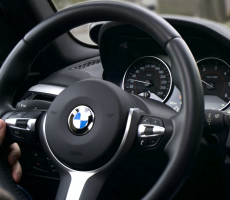
— A BMW M3 lawsuit has been denied class action certification after a federal judge ruled the two named plaintiffs weren't typical of the class of BMW M3 owners they were seeking to represent.
Both plaintiffs claim BMW designed the S65 engines in 2008-2013 M3 cars with a lack of clearance between the rods and the metal components between the rods and the bearings.
The lawsuit alleges as the bearings wear out, small pieces of metal debris contaminate the engine oil which circulates through the engines, damaging vital components and causing engine failures.
According to the plaintiffs, BMW knew the engines were defective when the cars were sold, but failed to inform consumers about the defects.
One of the two plaintiffs purchased a 2011 BMW M3 from a private party in 2013, but in May 2015, he “heard noises coming from the vehicle” that he “believe[d] were symptomatic of rod bearing wear.”
He says he took his M3 to a BMW dealer on two occasions and was told the noise “was related to the [heat] expansion in the manifold” and not rod bearing wear.
After his second BMW dealer visit, he took his car to an independent service center which diagnosed his problem as premature rod bearing wear and replaced his rod bearings.
In addition, the plaintiff modified his car, specifically the transmission, software and by adding an air intake, exhaust and a supercharger.
The second plaintiff purchased a 2011 M3 from a BMW dealer in December 2014. Modifications were made to the wheels and tires on his M3, and on at least three occasions he took his M3 to a racetrack and had his laps timed, "either as part of a High-Performance Driving Education class or for an open track day event."
His M3 broke down on a racetrack and a BMW dealer said the engine seized because of the rod bearings. The plaintiff says he was told the engine needed to be replaced. The car was towed to his garage where it's still parked.
The plaintiff who drove the M3 died in December 2018 and the judge substituted his wife as the named plaintiff.
In a motion to dismiss, BMW argues the named plaintiffs aren't adequate to represent a class of M3 owners because the plaintiffs modified their cars before the engines allegedly failed.
The judge agreed by pointing out one plaintiff made significant modifications to his M3, including software modifications, changes to his transmission timing and adding a supercharger, alterations that put additional stress on the engine.
Data recovered from his M3 also shows he would occasionally drive his M3 to its revolutions-per-minute limit and exceeded it on one occasion.
The second plaintiff testified he modified his M3 before driving it at least three times on a racetrack where during one race the car broke down.
"Each named Plaintiff has therefore admitted to conduct that, at a minimum, raises the question of whether they complied with BMW’s Limited Warranty." - Judge Madeline Cox Arleo
The BMW M3 lawsuit was filed in the U.S. District Court for the District of New Jersey, Newark Division - Afzal, et al. v. BMW of North America.
The plaintiffs are represented by Goldman Scarlato & Penny PC, McCune Wright Arevalo LLP, and Thorsnes Bartolotta McGuire LLP.




